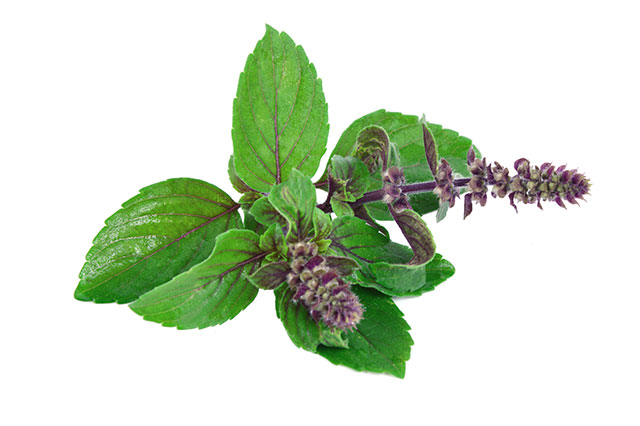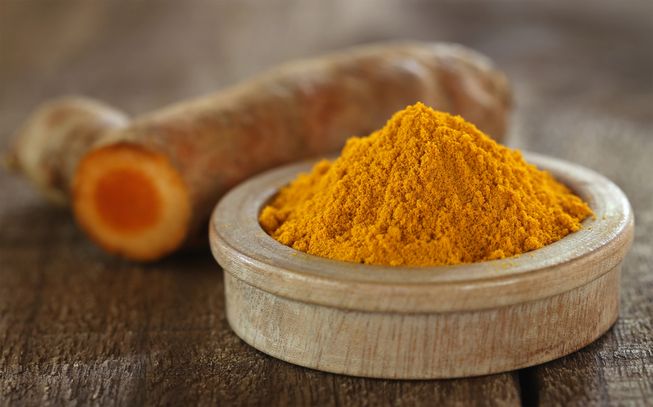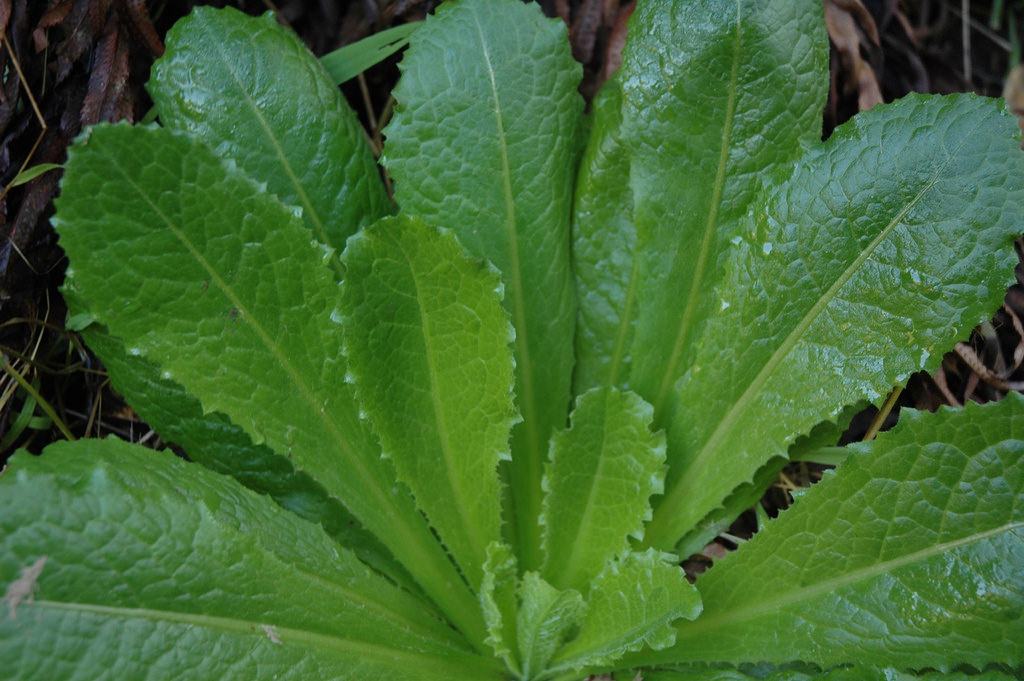
Advertisement
Basil is a leafy, flavorful herb that’s widely used in many cuisines around the world. A member of the mint family, this culinary ingredient and its many varieties all possess significant medicinal properties.
The most widely used variety of basil in Western cuisine is sweet basil (Ocimum basilicum). Also known as Genovese basil, this aromatic Italian herb has a spicy aroma and is often used in pesto recipes and tomato-based dishes.
Another type of basil you’re probably familiar with is Thai basil (Ocimum basilicum var. thyrsiflora). This Asian herb has a pleasing aroma similar to sweet basil, but its flavor is reminiscent of other herbs, specifically, clove, anise and licorice. Thai basil is commonly grown in home gardens and is a staple of Asian recipes.
But there’s another type of basil also native to Southeast Asia that deserves recognition. Holy basil, or tulsi (Ocimum sanctum), is better known for its medicinal uses than for its culinary application. A popular Ayurvedic medicine, Holy basil is known for its ability to address physical, chemical, metabolic and psychological stress, thanks to its unique properties.
Now researchers are beginning to uncover the many health benefits of holy basil. In a recent study, an Indian researcher looked at the effects of holy basil extracts and found that they can reduce the survival of lung cancer cells. His findings confirm that holy basil is not just a powerful adaptogen, but also an effective natural medicine that can be used to treat cancer.
Holy basil, a cancer-fighting herb
According to the study author, plant-derived compounds with medicinal properties are beginning to carve their niche in modern medicine. Recently, they have become an important source of novel pharmaceutical agents that could potentially replace commonly used synthetic drugs.
In the last 30 years, the author noted that up to 50 percent of newly approved drugs have been derived either directly or indirectly from natural products. In the area of cancer alone, 85 of the 175 anti-cancer agents currently recognized by the Food and Drug Administration (FDA) have come from medicinal plants.
Holy basil is one example of a medicinal plant that’s rich in promising pharmaceutical agents. Researchers recently discovered that this Ayurvedic herb can be used to treat diabetes, heart-related problems, microbial infections and even some types of cancer. However, not many studies have explored holy basil’s anti-cancer properties.
For his study, Venkateswarlu Yadavalli prepared three different extracts from holy basil using three different solvents, namely, water, ethanol and acetone. Using two chemical tests often used to measure cell viability after treatment, he evaluated the anti-cancer effects of holy basil extracts on cultured human lung cancer cells.
Yadavalli found that of the three holy basil extracts, only the acetone and ethanol extracts showed anti-cancer activity. Treatment with the two extracts significantly decreased the number of viable lung cancer cells in culture. The acetone extract showed higher toxicity than the ethanol extract, reducing cell viability by almost 80 percent at a low concentration of 50 micrograms per milliliter.
Based on these findings, Yadavalli concluded that holy basil is a potent anti-cancer agent that needs to be further explored for future use in clinical practice.
The nutritional and other medicinal uses of holy basil
Holy basil earned the name “queen of the herbs” not only for its medicinal properties but also for its impressive nutritional profile. It is also for these reasons that holy basil is now gaining traction as a culinary ingredient as well as an herbal supplement despite its spicy and bitter taste.
Holy basil is rich in important nutrients, such as vitamins A and C, calcium, iron and zinc. It is also a great source of chlorophyll, a plant pigment with wound-healing, blood-building, deodorant, anti-aging and anti-cancer properties. Besides adding it to your food, you can also use holy basil leaves and flowers to make a soothing herbal tea.
In Ayurvedic medicine, holy basil is considered a tonic for the mind, body and spirit. As a highly effective adaptogen, this herb can enhance your ability to cope with physical, chemical and emotional stressors. The different parts of holy basil can also be used to treat different kinds of ailments. For instance:
- Holy basil leaves and seeds (combined with black pepper) can be used to treat malaria
- Fresh holy basil flowers can be used to treat bronchitis
- The whole holy basil plant can help relieve diarrhea, nausea and vomiting
- The essential oil from holy basil leaves is great for insect bites
- Holy basil can be used to make an ointment for eczema
According to different studies, holy basil can also do the following:
- Reduce anxiety
- Protect against infections
- Lower blood sugar
- Reduce blood cholesterol
- Reduce inflammation and joint pain
- Protect the stomach from stress-induced ulcers
Holy basil is a highly useful herb that you can use for medicinal and culinary purposes. It is now sold in the form of dried tea leaves or capsules in many health food stores. The different parts of holy basil can also be used to treat a variety of conditions, ranging from anxiety and stress and microbial infections to more serious diseases like diabetes and cancer. For easy access to fresh herbs, you can grow holy basil in your garden. Not only is this versatile plant a great addition to your diet, but it is also a blessing to have in your backyard.
Sources:
Advertisements







